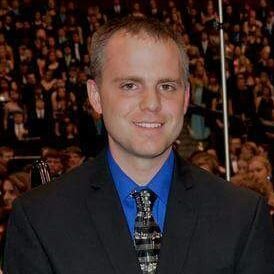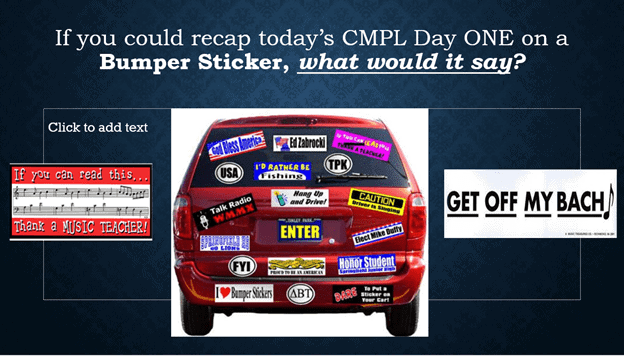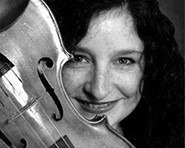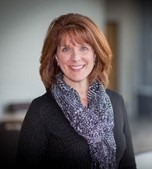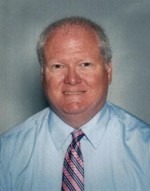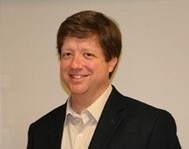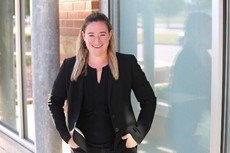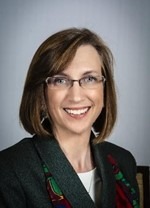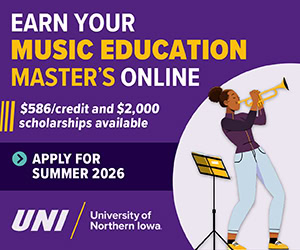NAfME BLOG
Music Supervisors Stay Connected and Caring for Music Education during COVID-19

/ News Posts / Music Supervisors Stay Connected and Caring for Music Education during COVID-19
Music Supervisors Stay Connected and Caring for Music Education during COVID-19
A 113-year History!
By Michael D. Stone, Chair, NAfME Council of Music Program Leaders
Visual and Performing Arts Coordinator, Bakersfield City School District
Bakersfield, California
Music supervisors, by the nature of their work, have unique roles, responsibilities, and expertise within the school systems in which they serve. Music program leaders can sometimes feel isolated when it comes to finding meaningful professional learning experiences that will meet their specific needs. This reality means that we must create a broad network of support with our colleagues in order to find meaningful professional development necessary in supporting us in our work.
In a normal year staying connected with colleagues takes work. We are busy monitoring budgets, supervising employees, providing professional development for music teachers, and setting a strategic course for our music programs. Add the COVID-19 pandemic, and the need to isolate at home, and finding time and avenues for our own professional learning is even more of a challenge this year. The National Association for Music Education (NAfME) 2020 Music Program Leaders Virtual Forum, held in the beginning of November, provided school music supervisors from across the United States the opportunity to stay connected and caring for music education during this unprecedented time of COVID-19, all while gaining much-needed professional learning in a setting of collaboration. Presented by the NAfME Council of Music Program Leaders (NCMPL), the Forum provided an opportunity to learn how music educators are implementing music education during this year of the pandemic. Insights and multiple resources were big take-aways from the Forum!
2020 Music Program Leaders Virtual Forum Highlights
The 2020 NAfME Music Program Leaders Virtual Forum was held on November 4–5, 2020. This year more than 150 music program leaders participated virtually over the two days! Member-At-Large, and a past Council Chair, Shawn Chastain, shared with attendees that this was actually the fourth year of the “Forum,” first initiated as a component at the NAfME National Conference in Dallas, Texas, in 2017. As the saying goes, out of challenge comes opportunity. One of the positive outcomes of the “virtual” format this year was that attendance did not require travel, expense, and time away from our work at the district level. As a result, we saw a record number of registrants—around 150 registrants. The goal was to make our time together meaningful, interactive, and collegial. The result was an invigorating two days of professional learning!
Welcome by NAfME President Dr. Mackie V. Spradley
Our first day started with a welcome by NAfME President Dr. Mackie V. Spradley, a former music supervisor with the Dallas Independent School District, and current Director of Enrichment Education with the Texas Education Agency.
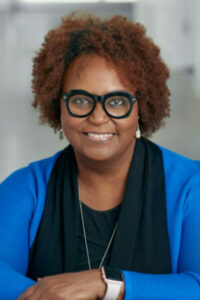
Mackie Spradley. Photo by Steven Noreyko.
Dr. Spradley shared her vision that music supervisors certainly have the ability to influence decision-makers in order to ensure that music education remains core in America’s public schools. Music supervisors have the authority to affect change in the systems and structures of curriculum, instruction, and student access. President Spradley’s message was powerful and demonstrated the importance of music program leaders in our schools.
NCMPL Roundtable Discussion
Day One included an informative roundtable discussion with the NCMPL, giving attendees a sense of how music education is currently being implemented across the nation during a school year restricted by many public health directives as a result of COVID-19. Many schools are in a virtual learning format, while others are in a hybrid model, or even a five-days-a-week face-to-face model. It was interesting to hear the perspectives of the Council members as they spoke of their work at the local level. Attendees posted questions in the chat, and NAfME staff guided the Council in responding to questions.
“Hot Topics Break”
 Due to our attendees being in several time zones, the Council scheduled time each day for a “hot topics break” when some of us ate lunch and others had a morning snack while hearing about aerosol mitigation strategies for the music classroom, presented by Dr. James Weaver. Dr. Lance Nielsen, Supervisor of Music with the Lincoln, Nebraska Public Schools, shared a short video modelling best practices for music educators teaching simultaneously with some students learning face-to-face and others joining in a virtual setting. This hybrid model is proving to be very safe with no COVID-19 spread in some school systems, like in Lincoln, Nebraska.
Due to our attendees being in several time zones, the Council scheduled time each day for a “hot topics break” when some of us ate lunch and others had a morning snack while hearing about aerosol mitigation strategies for the music classroom, presented by Dr. James Weaver. Dr. Lance Nielsen, Supervisor of Music with the Lincoln, Nebraska Public Schools, shared a short video modelling best practices for music educators teaching simultaneously with some students learning face-to-face and others joining in a virtual setting. This hybrid model is proving to be very safe with no COVID-19 spread in some school systems, like in Lincoln, Nebraska.

Keynote Speaker Anne Fennell
This year’s keynote speaker was Anne Fennell, K–12 Music Program Manager with the San Diego Unified School District. Anne inspired us all with her presentation entitled “Our Hero’s Journey.” We all left Anne’s session feeling that we can not only make it through COVID-19, but exit stronger. America’s music educators are indeed heroes!

Learning Professional Dispositions and Creating Culturally-Responsive Music Education Programs
Two themes in our presenter sessions over the two days included professional dispositions for music educators and culturally-responsive learning models in music education. Marc Greene, our NCMPL Liaison with the NAfME National Executive Board, shared COSI, an acronym for Communication, Organization, Sophistication, and Inspiration. As we plan to onboard our new music educators in the years to come, we will benefit from the information presented by Mr. Greene.

Top, left to right: Marc Greene, Timothy Bupp, Marcia Neel. Bottom, left to right: Bob Morrison, Julie Duty.
Timothy Bupp, with the Spring Grove Area School District in Pennsylvania, presented a model music education program where contemporary and traditional ensembles are offered to students at all levels. This model proves that you can have a diverse music education program where students can find music courses that connect with their interests.
Marcia Neel, former music supervisor with the Clark County, Nevada public schools, shared information about creating a model Mariachi program in the public schools. Joined by Bob Morrison of Quadrant Research and Julie Duty of United Sound, social-emotional connections were presented, as well as strategies necessary to impact Special Education students with music education.
Our Closing Each Day
Each day concluded with small group collaboration facilitated by the NCMPL and a Happy Hour hosted by Shawn Chastain. What a great way to collaborate with new colleagues from across the country!
Final Thoughts: The NCMPL’s Role in NAfME’s History
The NCMPL has played vital role in our Association’s history and continues to lead the way in the field of music education. In fact, music supervisors started the Music Educators National Conference (MENC), now NAfME, back in 1907.
Below is a short excerpt from the NAfME website explaining how and why the association was founded:
The San Francisco earthquake and fires on April 18, 1906, inadvertently led in 1907 to the founding of what is now known as the National Association for Music Education (NAfME). The disaster destroyed 500 blocks of the city, set off fires that burned for three days, and left more than 200,000 people homeless.
The National Education Association (NEA) cancelled its annual meeting in the City by the Bay that year. At that time, music supervisors were members of the NEA Department of Music Education, a department that dated back to 1894.
NAfME’s First Conference
As music education evolved, focusing on more detailed teaching methods, some began to advocate for a separate organization to better serve music educators. Philip C. Hayden, the music supervisor for the Keokuk, Iowa, public schools, was among the most vocal.
When the NEA rescheduled its meeting for 1907 in another California location, Hayden called for a separate music educators’ association gathering. He invited music supervisors to Keokuk, Iowa, to explore a variety of topics. According to the NAfME centennial book, MENC: A Century of Service to Music Education, 1907–2007, “Over the previous two years he had conducted experiments with a progressive series of rhythm forms used to teach students . . . Hayden called his method ‘Ear Training in Rhythm Forms,’ and he was eager to share his techniques with fellow music educators.”
Hayden contacted “about 30 influential music supervisors in the Midwest,” asking, “Would it be possible at such a time to have a convention of the supervisors of the middle west to last . . . two days comprising of six lessons with a regular program, my ear work in rhythm forms to be given up to problem of general interest, to papers and discussions?”
The answer was a resounding “yes,” and a notice was placed in the publication School Music Monthly, drawing 104 attendees for meetings April 10–12, 1907, at the First Westminster Presbyterian Church in Keokuk.
Today, the NAfME Council of Music Program Leaders includes a chair appointed by the National President, Division representatives appointed by Division Presidents, and three members-at-large appointed by the chair.
The charge of the Council is simple:
“NAfME Council of Music Program Leaders (NCMPL) seeks to create, support, and ensure high-quality, active music learning environments for all children. In collaboration with national, state, and local music education organizations and leaders, we promote the use of music curriculum and assessments that prepare music students for careers in the 21st century. The NCMPL contributes informed suggestions for effective measures for music teacher evaluation systems and acts as a conduit for gathering and disseminating information that is pertinent to school music education programs. The NCMPL also serves as a support network for sharing information and strategies among its members.”
Michael Stone, Chair, Council of Music Program Leaders
Judith Hawkins, Eastern Division Representative
Ann Davis, North Central Division Representative
Ann Medellin, Northwest Division Representative
Annamarie Bollino, Southern Division Representative
Martha Gabel, Southwestern Division Representative
Scott Burgener, Western Division Representative
Shawn Chastain, Member-At-Large
Heather Cote, Member-At-Large
Jeanne Reynolds, Member-At-Large
Please reach out to your Council Representative anytime for support in your work! We are here to serve!
About the author:
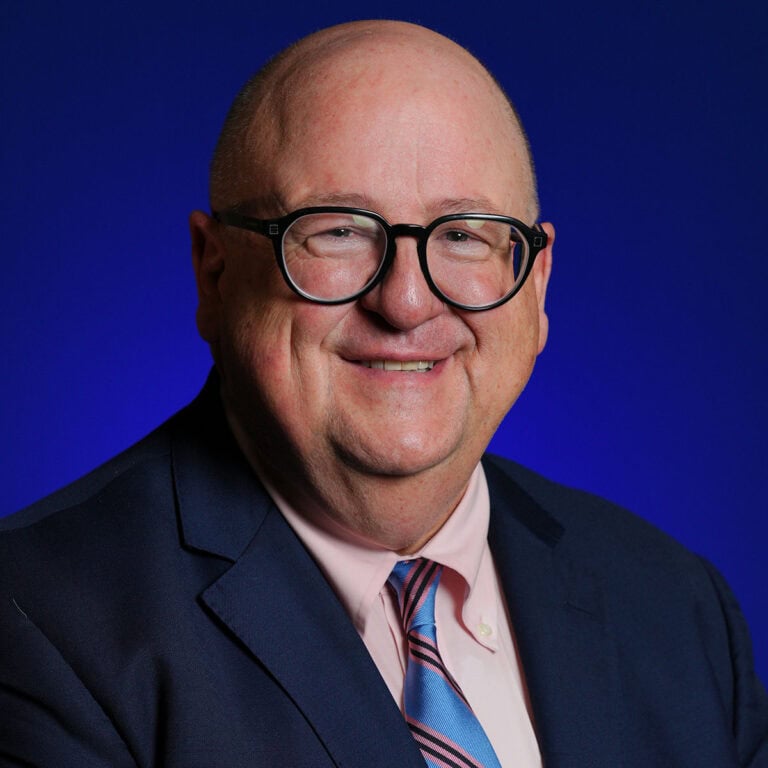 Michael D. Stone earned the B.A. in Music Education/Performance and the M. Ed. from University of California, Los Angeles. Mr. Stone serves as the Visual and Performing Arts Coordinator for the Bakersfield City School District. As the arts administrator for the district, he oversees arts programs at 31 elementary schools, 6 middle schools, and 2 junior high schools. Prior to assuming this position, Mr. Stone served for over 14 years as instrumental music teacher at Chipman Junior High School, also in the Bakersfield City School District.
Michael D. Stone earned the B.A. in Music Education/Performance and the M. Ed. from University of California, Los Angeles. Mr. Stone serves as the Visual and Performing Arts Coordinator for the Bakersfield City School District. As the arts administrator for the district, he oversees arts programs at 31 elementary schools, 6 middle schools, and 2 junior high schools. Prior to assuming this position, Mr. Stone served for over 14 years as instrumental music teacher at Chipman Junior High School, also in the Bakersfield City School District.
Chipman bands and orchestras consistently earned Unanimous Superior Ratings at California Music Educators Association (CMEA) ratings festivals during his tenure. Chipman ensembles performed at the state conferences of CMEA and California Band Directors Association. Mr. Stone was featured in the January 1999 issue of The Instrumentalist Magazine, and has written several articles for the magazine since that time. During the summer of 1998, he was awarded the prestigious “Fellowship in Music Education” at Northwestern University. In March of 2009, Mr. Stone served as an Online Mentor for the Music Educators National Conference National Council of Supervisors of Music Education.
In 2016, Mr. Stone authored a blog post entitled “Mentoring New Music Educators for Lifelong Success in the Profession” for the National Association for Music Education, or NAfME.
Mr. Stone is a Past President of CMEA, CBDA, CMEA Central Section, Kern County Music Educators Association, and began work as the Chair of the National Association for Music Education (NAfME) Council of Music Program Leaders on July 1, 2020, appointed by NAfME President Mackie Spradley. He has also recently served as the Music Supervisors Representative on the CMEA State Council from 2018–2020, and was Western Division Representative on the NAfME Council of Music Program leaders from 2016–2019. Learn more about Michael Stone here.
Did this blog spur new ideas for your music program? Share them on Amplify! Interested in reprinting this article? Please review the reprint guidelines.
The National Association for Music Education (NAfME) provides a number of forums for the sharing of information and opinion, including blogs and postings on our website, articles and columns in our magazines and journals, and postings to our Amplify member portal. Unless specifically noted, the views expressed in these media do not necessarily represent the policy or views of the Association, its officers, or its employees.
December 4, 2020. © National Association for Music Education (NAfME.org)
Published Date
December 4, 2020
Category
- Uncategorized
Copyright
December 4, 2020. © National Association for Music Education (NAfME.org)

